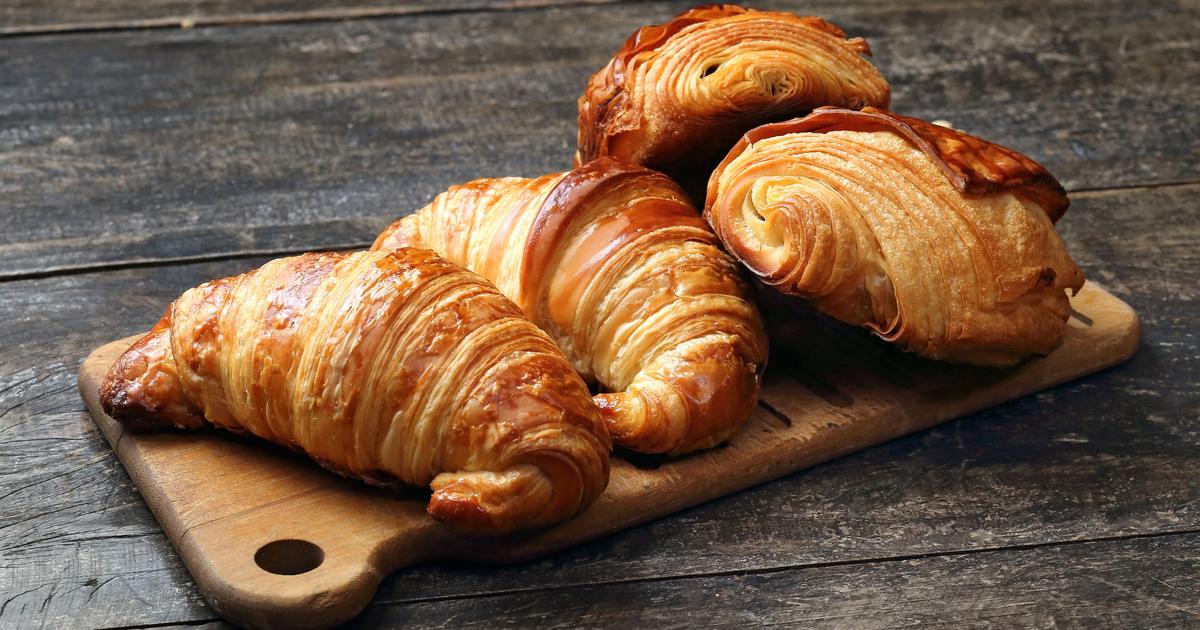For breakfast, brunch, or to treat yourself to a delicious snack, pain au chocolat and croissants are often a must and are synonymous with sweetness. From a nutritional point of view, on the other hand, some people know that these pastries are far from being healthy and should be consumed in moderation. But between the croissant and the pain au chocolat, which is less bad? Is there one that is less fatty and sweet?
To discover
Download the Le Figaro Cuisine app for tasty and authentic recipes
Also read: How often can we allow ourselves pastries and pastries?
A similar composition
At the risk of disappointing, neither of these two sweets is to be favored. They have an almost similar nutritional composition. There are 250 to 300 calories for a pain au chocolat and 230 to 270 for a croissant. “We find on average 25 grams of lipids in each person,” explains Angélique Plier, dietician nutritionist, “with an additional 2 to 3 grams (the equivalent of a little more than 2 tablespoons of oil) for pain au chocolat. , because of his chocolate bar. Both also contain 45 grams of carbohydrates on average, with an extra 6 grams for bread.
In reality, pain au chocolat and croissants are “pleasure” foods and do not provide anything interesting for the body to function. “They are only saturated fats and fast sugars,” summarizes the dietitian nutritionist, “they do not offer any vitamins, fibers or minerals to the body.” After ingesting them, we will not feel full and we may eat more.
Consume sparingly
Hence the importance of ensuring moderate consumption. “The fast sugars in both foods cause a blood sugar peak, a sudden increase in blood sugar levels,” informs Angélique Plier. The drop in this rate will be as rapid as its rise and will then cause fatigue, a new desire to eat, and to eat sugar. Ultimately, too much consumption of fast sugars can even contribute to developing a fatty liver, warns the dietitian. Their saturated fat content also requires moderation of their consumption. “An excess can cause the creation of pro-inflammatory prostaglandins, substances that cause inflammation throughout the body,” adds the professional. Not to mention that sugars and saturated fats will harm our intestinal flora.
They are only saturated fats and fast sugars, summarizes the dietitian nutritionist, they do not offer any vitamins, fibers or minerals to the body.
Angélique Plier, dietitian nutritionist
At breakfast or brunch, however, you can limit the damage by adding a salty element to your croissant or pain au chocolat. More precisely, a good source of protein and fiber which will limit the absorption of fats and sugars. In practice ? “A raw vegetable salad or two eggs would be the preferred accompaniment,” advises Angélique Plier. Finally, we will be careful not to consume one of these two pastries after 4 p.m. “The enzymes best able to digest saturated fats are much less efficient after this time,” explains the dietician. To enjoy them, it is therefore better to choose the morning or lunch time, for example.”

